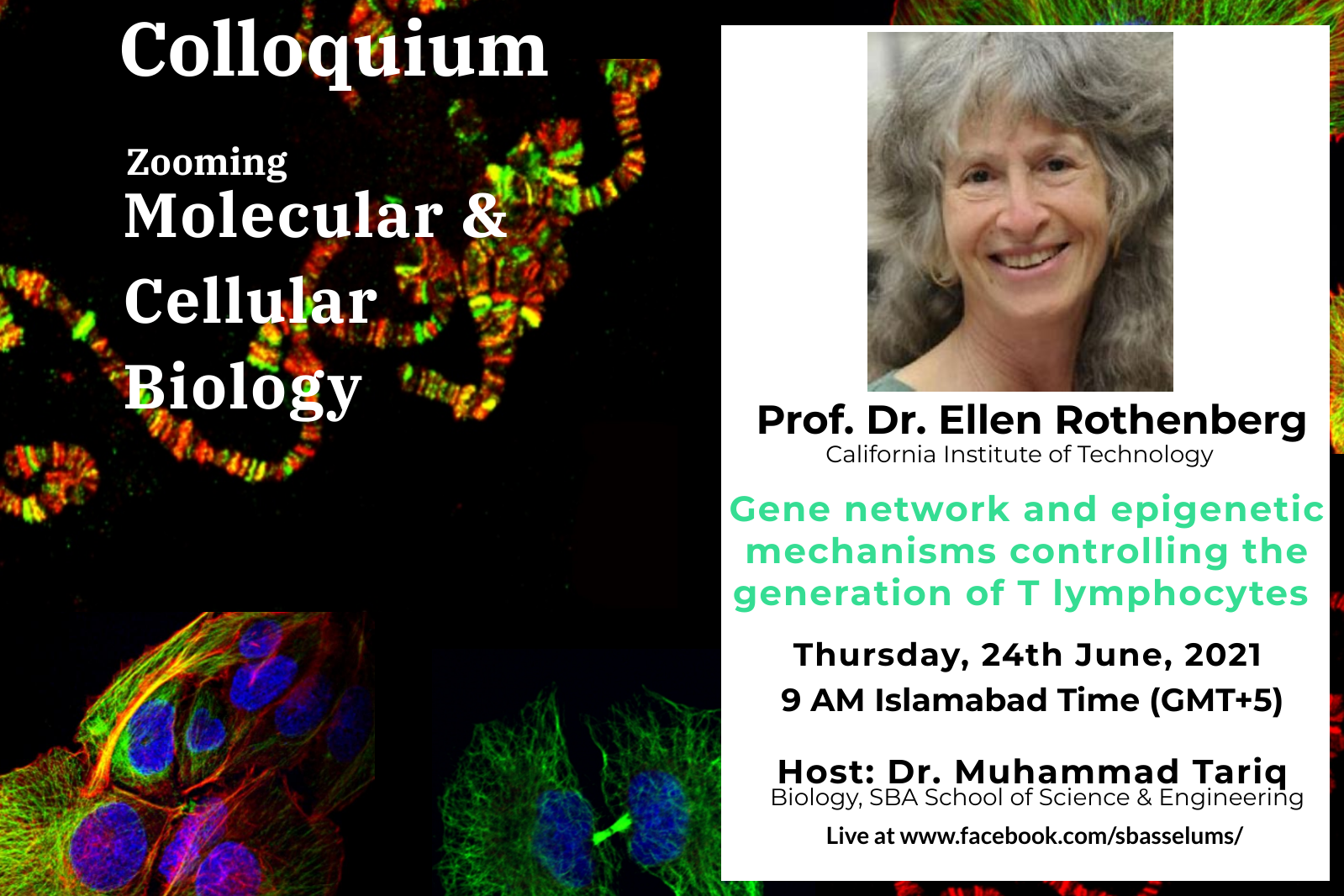
Gene Network and Epigenetic Mechanisms Controlling the Generation of T-Lymphocytes
The Rothenberg lab has focused on answering three kinds of questions. First, how do the transcription factors in these cells act in a cascade, so that each transcription factor works to activate or shut off other transcription factors in an orderly way, which then themselves change the expression of another set of genes? Second, how does the epigenetic state of the chromatin affect what these transcription factors can do at a given stage, and how do the factors themselves alter the epigenetic state to allow differentiation to proceed? Third, how do these mechanisms explain the high efficiency but slow speed of this developmental process? The talk will show how recent results shed light on these questions.
Prof. Dr. Ellen Rothenberg is our distinguished guest for the upcoming session in Molecular and Cellular Biology Colloquium. She will be talking about “Gene Network and Epigenetic Mechanisms Controlling the Generation of T-Lymphocytes” on 24th June 2021 at 9am Pakistan time.
Professor Dr. Ellen Rothenberg is Distinguished Professor of Biology at the California Institute of Technology, Pasadena, CA, USA. She studies gene regulation and development of T lymphocytes, gene networks controlling hematopoietic cell fates, and mechanisms underlying the dynamics of single-cell developmental decisions. She received her bachelor's degree in Biochemical Sciences from Harvard University and her Ph.D. from the Massachusetts Institute of Technology. After a Jane Coffin Childs Postdoctoral Fellowship at Sloan-Kettering Institute and an Assistant Research Professorship at The Salk Institute, she came to Caltech in 1982 and rose to become Albert Billings Ruddock Professor in 2007, then Distinguished Professor in 2021. She has been elected Fellow of the American Association for the Advancement of Science, Fellow of the American Academy of Arts and Sciences, and Member of the National Academy of Sciences. She was also selected for the inaugural class of Distinguished Fellows of the American Association of Immunologists. She won the Richard P. Feynman Prize for Excellence in Teaching and eight other teaching awards at Caltech, and has taught internationally on immunology, developmental biology, and gene regulatory networks.

